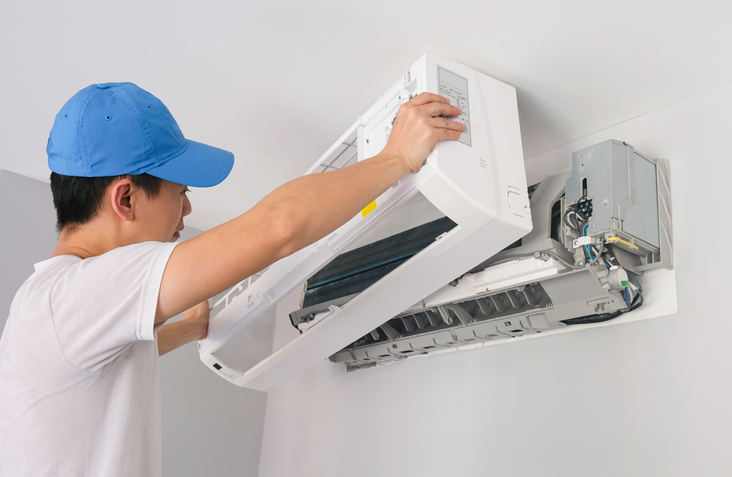
How to Reduce Noise from Your HVAC System
April 15, 2025
The noise made by your HVAC system (humming, rattling, whistling, clanging, hissing, etc.) disrupts your peace, making it difficult to relax. Want to create a serene environment, enhance the quality of your life, and boost feelings of well-being? The following are simple tweaks and a few complex solutions to minimize HVAC noise and create a quieter home environment.
Why You Need To Address HVAC Noise
HVAC noise can:
- Disrupt your sleep: If your HVAC system is noisy, it may make it difficult to get a good night’s sleep, which is an essential factor in overall well-being.
- Reduce concentration: A noisy environment may make it difficult to focus on work, causing decreased productivity.
- Decrease comfort: Continuous noise may cause discomfort. This can make it hard to de-stress and enjoy your home.
- Increase stress: Long exposure to the noises of an HVAC system may lead to irritability and increased stress.
- Impact your quality of life: Noise pollution reduces overall quality of life and may affect mental and physical health.
Practical Solutions To Minimize HVAC Noise
The following are ways to reduce the noise your HVAC system creates.
- Seal air leaks: Air escaping through ducts may cause whooshing, whistling, and other sounds. Ensure ducts are correctly sealed. Stiffen the ductwork or add foam baffles/gaskets to prevent further leaks.
- Ensure proper ventilation: Ensure your system is ventilated through sealed-off areas. Place screens on exterior vents to block noise.
- Adjust the speed of the fan: Static pressure may cause HVAC noise. Too high a fan setting forces more air than the ducts can handle. An appropriate fan speed lowers static pressure, reducing noise.
- Upgrade/add ductwork: Too small ductwork causes increased pressure and noise. Upgrading or adding more ducts helps to quietly and evenly distribute air. Check that your return ducts are the appropriate size for your system.
- Install soundproof blankets or duct silencers: Wrap your compressor in a soundproof blanket (available at acoustic solution stores), or use insulation, acoustic panels, noise barriers, and soundproof curtains to dampen noise. Install duct silencers to absorb sound.
- Clean ducts and air filters: Dirt and debris in the ducts or air filters obstruct airflow, increasing noise. Regularly clean/replace filters and hire a professional to clean the ducts.
- Try flexible ducts: Hard-style ducts are noisier. Flexible ducts (made of rubber) reduce overall nose and direct airflow efficiently. Check flexible ducts often as they are prone to knicks and sagging.
- Place the system correctly: Ensure your HVAC unit is not near the bedrooms or the living room. Locate it in a large enough area that sound does not bounce off the walls.
- Insulate walls/ducts: Use fibreglass or acoustic foam to absorb sound and keep noise from moving through ducts and walls.
- Construct a sound maze: Build a simple sound maze with wood panels or cardboard around the air unit or ductwork. Create a zigzag pattern. This will deflect/absorb noise before it reaches the rest of your home.
- Adjust your environment by purchasing soft furnishings (rugs, carpets, drapes, cushy furniture). These act as natural noise absorbers, muffling the noise and reverberations of your HVAC system and lowering perceived noise levels.
- Ensure proper installation of your HVAC system. This guarantees the unit is securely mounted, level, and correctly sized for your home, reducing excess noise.
- Upgrade your system: HVAC systems last approximately 15 years. Old systems have noisy compressors, motors, and fans. New models run quieter and are more energy-efficient.
McMillin Air Can Help
If your HVAC system is too noisy for you and your family, Contact McMillin Air. We do regular maintenance and annual HVAC inspections on all makes/models. We carry American Standard and Mitsubishi Electric systems. Our team of professional cooling and heating experts can help!

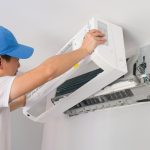
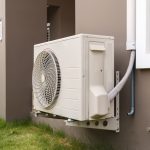
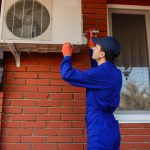
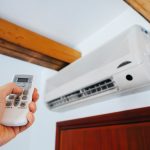
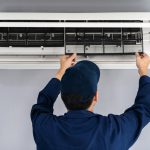


0 comments